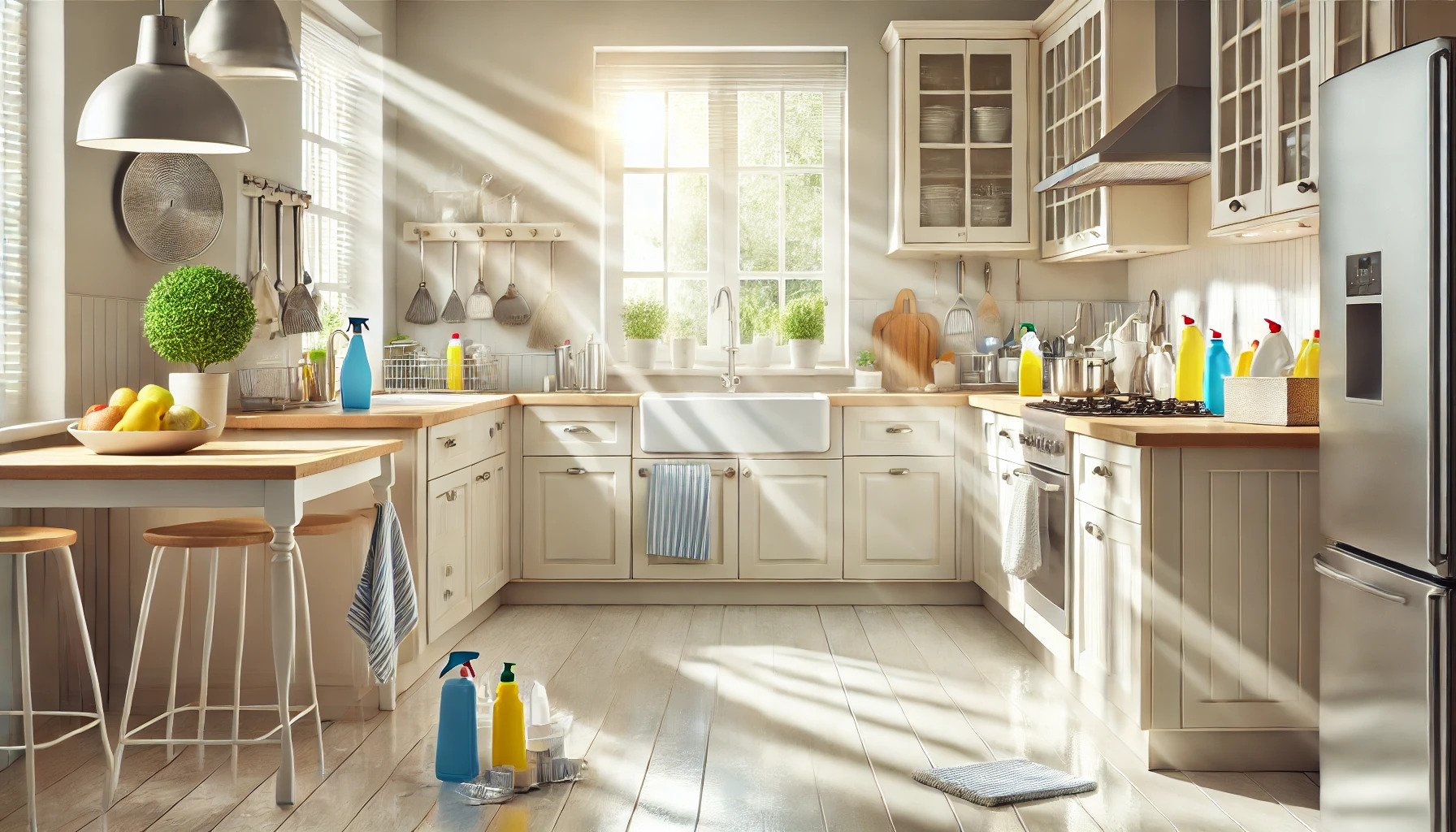What Is The Post-Cleaning Process?
After the hammering of the last nail and the drying of the last coat of paint, a newly constructed building may look finished—but actually, there is one final step to take before it's ready for people to start moving in: post-construction cleaning. This specialized, multi-phase process will take any construction site from dust, dirt, and debris to a clean, safe, and welcoming space. In this detailed guide, we'll break down exactly what comprises post-construction cleaning and why it's important. For any cleaning needs, Sparkly Maid Miami is always here to help your home to be sparkly.
The Three Phases of Post-Construction Cleaning
There are generally three phases of post construction cleaning : rough, light, and final. Each of these phases targets a different aspect of cleanup and progressively readies the building for occupancy.
Rough Cleaning
The rough cleaning phase, sometimes referred to as the "first clean," is conducted when principal construction work is complete and before flooring and finish installation. Major work or tasks carried out in this phase are:
Clearly getting rid of big pieces of rubbish, debris, and remaining materials.
Sweeping and vacuuming of floors to remove dust and dirt.
Sticker and label removal on windows and doors.
This is a first clean, really, and it leads into the more detailed work that follows.
Light Cleaning
The "second clean" is light cleaning, the most time-consuming phase, which requires a range of cleaning tools and equipment. This is where cleaners begin to focus on specific rooms and surfaces such as:
Bathrooms: Cleaning sinks, toilets, and fixtures properly
Kitchens: Wipe down cabinets, counters, and appliances
Windows and glass: Clean and remove stickers and residue left on them
Walls and Doors: Dust and remove spots
Air ducts and vents: Vacuum and clean for improved air quality indoors
Many clients hire professional cleaning services at this phase to ensure the best results.
Final Cleaning
This is the final cleaning stage, often referred to as the "touch-up clean," which happens days after the light cleaning so all dust and dirt settle. During this stage of cleaning, cleaners really focus on finishing touches such as the following: wiper removal of smudges and fingerprints, polishing fixtures and surfaces, spot-cleaning of carpets and floors, and last dusting and vacuuming. The space should be sparkling clean and ready to be occupied at the end of the final clean.
Why is Post-Construction Cleaning So Important?
The following points explain why post construction cleaning is important:
Health and Safety: Construction sites raise much dust, debris, and possible contaminants that badly affect indoor air quality and can be hazardous to health. Proper cleaning removes these hazards.
Aesthetic appeal: In this regard, a clean space, professionally so, is more attractive and inviting to new occupants or buyers.
Functionality: In post-construction cleaning, the building is fully functional and ready for use; all surfaces and systems are clean and in proper working order.
Efficiency: This is the time and effort saved for the construction crews to do their work, as they focus on their core competencies by hiring professional post-construction cleaners.
Tackling the Challenges of Post-Construction Cleaning
Inherently, many problems come with a newly constructed building, such as stubborn stains, adhesive residues, and heavy dust accumulations. Professional cleaners have the expertise, skill, and proper equipment to deal with these effectively. They also follow proper safety measures by wearing PPE to protect them from health risks.
One of the major problems is the construction dust, which appears to settle on every possible surface and even in out-of-reach locations such as vents and light fittings. The majority of these are very fine particles and thus require special equipment for cleaning, like HEPA vacuums. Some other sticky situations include the stickers, tapes, and protective coverings that are on windows and floors. All these are very hard to clean and require professional cleaners equipped with industrial solvents and scrapers, which they use without wrecking the surfaces.
Moreover, some of the prevalent problems are paint splatters and grout haze, which require loads of attention. There should be the proper approach to techniques and materials for the solution of such problems so that the new finishes are not damaged. Construction debris has to be disposed of properly so as to keep up cleanliness and safety. The professional cleaning crews at Deep Cleaning Seattle are trained in waste segregation and disposal methods in compliance with local regulations.
Best Practices for Successful Post-Construction Cleaning
These are the best practices that can be followed for ensuring the post-construction cleaning process is systemically strong and efficient:
It is recommended to hire pros for post-construction cleanup who have acquired the relevant skills and proper equipment.
Use ecofriendly products: Try using environmentally-friendly cleaning products that have reduced hazards for both the cleaners and future building occupants.
Observe Local Regulations: Comply with local regulations related to waste disposal, chemical usage, and air quality standards.
Put into place a digital checklist that will help one in keeping organized, delegating tasks, tracking the progress of the cleaning process, and not missing any areas.
The Bottom Line
Post-construction cleaning is a very important procedure in construction. It takes a work site and makes it livable and workable. Understanding phases and the importance of this process will help you to make your newly constructed building clean, safe, and ready for its intended use. Be it a construction professional or a client, making post-construction cleaning a priority will mean health, safety, and satisfaction of the future building occupants.
